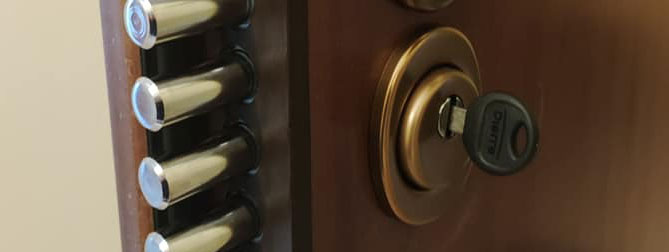
Impression technique: is it really dangerous for all cylinders?
The Lock Picking Technique of Impression on European Cylinder: Complete Guide

Lock picking is a skill that never ceases to amaze in its complexity and precision. Among the various lock picking techniques, impression picking stands out for its ability to create a duplicate key without having the original available. This technique becomes even more fascinating when applied to European cylinders, known for their security and widespread use. In this article, we will explore the impressioning technique applied to European cylinders in detail, analyzing the process, the tools needed, and ethical considerations.
What is the Impression Technique?
The impressioning technique involves creating a working key for a lock from a lowered key blank covered with adhesive aluminum. This technique takes advantage of the softness of aluminum to self-impress the encryption on the key. The European cylinder, known for its strength and security, presents an interesting challenge for lock pickers.
Tools Needed
To apply the impression technique on a European cylinder, you will need:
- Lowered Rough Key: Specifically for the European cylinder.
- Pliers: For manipulating the key blank.
- Soft adhesive aluminum: To imprint the encryption on the key.
Specific Challenges of European Cylinders
European cylinders are designed to provide a high level of security, and they have certain features that make the impression technique particularly challenging:
- Anti-Drill Pins: These pins are designed to make it more difficult to manipulate the lock.
- High Quality Springs: Stronger springs can make it more difficult to leave clear marks on the rough a key’aluminum.
- Customized profiles: Cylinders with milled and particular key profiles or very small holes make it impossible to make an impression.
- Reduced Tolerances: The accuracy required to duplicate a key for a European cylinder is extremely high, making any error potentially critical.
Ethical and Legal Considerations
As with all lock picking techniques, it is critical to practice impressioning in a legal and ethical manner. Unauthorized duplication of keys can have serious legal consequences. This technique should be used only with the lock owner’s permission and in legal contexts, such as for creating legitimate duplicates or for educational purposes.
Conclusion
The impressioning technique applied to European cylinders presents a fascinating challenge for anyone interested in lock picking. It requires precision, patience, and a high level of manual skill. While it is an advanced technique, the satisfaction of creating a working key without having the original is priceless. Always remember to practice lock picking responsibly, respecting the laws and rights of others.
If you are passionate about lock picking and want to deepen your knowledge, keep following our blog for more guides, techniques, and insights!


